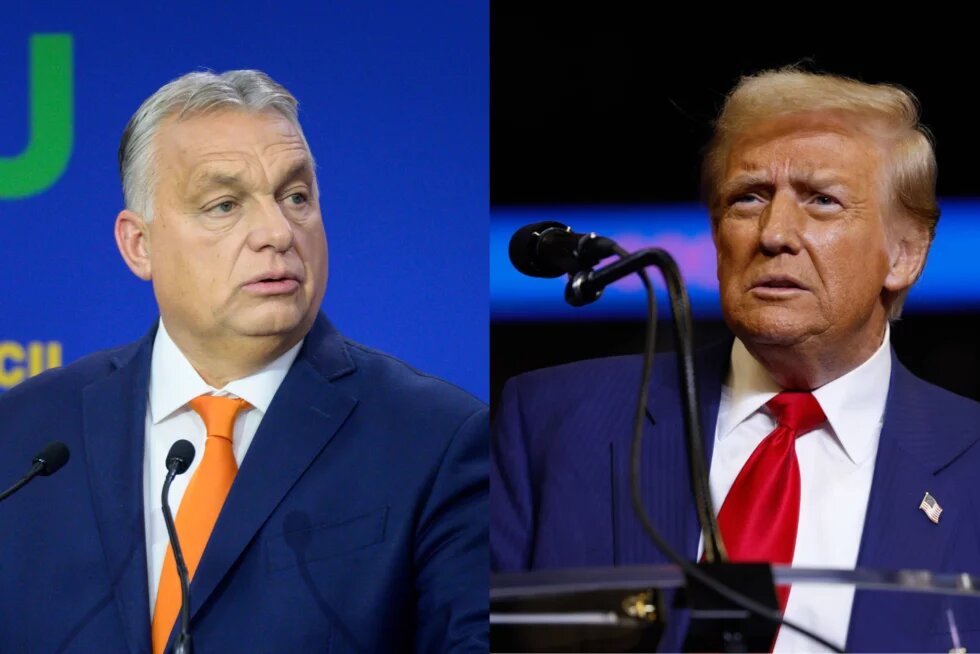For Hungary’s prime minister, who has backed Donald Trump for years, a victory in the U.S. presidential election means more than a symbolic win – it could also deliver concrete advantages. In the short term, such a result would bolster Viktor Orbán’s position both internationally and domestically. However, differences in political priorities and in economic interests in particular could create friction between Washington and Budapest in the medium to long term. Given Trump’s unpredictability, there is no guarantee that Orbán’s promises – such as swift peace in Ukraine and an economic boom - will come to pass.

Orbán has placed all his bets on Trump in recent years, taking a risk by fully aligning with him, especially as potential allies have had mixed results recently. In countries like Poland, Spain, and most recently Moldova, the political forces Orbán favours have failed to secure victory. Even in places where they have had some success – such as France, Austria, and the Netherlands – these forces have not truly broken through. However, there have been notable wins: Robert Fico’s return in Slovakia, the AfD’s victories in several German states, and the persistence of illiberal leadership in Georgia.
Nevertheless, Trump’s win is Orbán’s most significant political asset, fueling his ambitions for an illiberal, sovereign hegemony in Europe. At recent European summits, Orbán called for a new European strategy in light of Trump’s victory, emphasising a vision of a "sovereign Europe" and questioning EU financial support for Ukraine. His domestic and international room for maneuver is expanding, but it remains to be seen how far he can advance his agenda within European political circles.
Foreign Policy Gains: Expanded Influence and Potential Exemptions
Although Orbán had limited success in building relations with Trump during his first term, he has since advanced Hungary’s influence through extensive investment, building connections with Trump-aligned networks and organisations. Trump’s return positions Orbán as one of his most important European allies, facilitating mutual support in international arenas.
Trump’s victory may energise Europe’s populist and far-right forces, boosting the legitimacy of policies and narratives once deemed extreme, especially on migration. This wave could benefit Orbán’s alliance-building efforts across Europe and beyond, potentially leading to more allied votes in the European Council, where Orbán could leverage his influence on key EU decisions.
The ideological kinship between Trump’s administration and Orbán’s government – centred on sovereignty, Christianity, and traditional values – could yield even stronger ties. Hungarian institutions, such as the Center for Fundamental Rights, have cultivated connections with American counterparts, such as the Heritage Foundation and CPAC, establishing Orbán as a valuable influencer in shaping U.S. policy. Some U.S. conservatives see Hungary’s illiberal governance as a model for America, and Orbán has hinted at Hungarian experts contributing to Trump’s policymaking.
Trump’s re-election also offers Orbán potential leverage within the EU. Orbán could position himself as a mediator with Trump or use his sway to complicate EU decision-making. Trump’s reduced focus on Europe could open the door for Orbán to negotiate leniencies in areas like Hungary’s ties with China. Through his relationship with Trump, Orbán may secure exemptions from certain U.S. policies, easing pressure on Hungary’s foreign partnerships.
Domestic Political Impact: Strengthening Orbán’s Visionary Image and Reducing External Criticism
Domestically, Trump’s victory reinforces Orbán's image as a visionary leader, particularly as Hungarian government propaganda portrays Orbán as a leader whose predictions, though controversial, ultimately prove correct. Trump’s success lends credence to this narrative, especially in a time of waning domestic support. In recent years, the Hungarian government has invested heavily in building relationships with Trump’s Republican allies, an effort that now seems to be bearing fruit.
With Trump in power, Orbán can expect fewer criticisms from Washington regarding rule-of-law issues and corruption, weakening potential dissent from the EU. The Hungarian government may feel freer to operate without the fear of external pressures on democratic norms, giving Orbán greater flexibility in domestic governance.
Enduring Questions: Will the Trump-Orbán Alliance Prove Sustainable?
While the alliance between Trump and Orbán presents a tactical victory, potential areas of conflict could emerge, particularly in economic policy. Trump’s trade policy, characterised by tariffs and protectionism, poses risks for Hungary, which could suffer in a U.S.-EU tariff escalation. Being reliant on free trade and integration within the EU, Hungary would likely be among the hardest-hit economies by Trump’s restrictive trade measures.
Further complicating matters, Trump’s hardline stance on China, including tariffs and tech restrictions, could undercut Hungary’s economic model, which increasingly relies on Chinese electric vehicle production. With Trump back in office, Hungary may find itself squeezed between EU expectations and U.S. demands, especially as Trump’s policies disrupt the Hungarian economy’s Chinese and German dependencies.
Since Election Day, Orbán has frequently mentioned having “big plans” with Trump, without offering specifics. These ambitions may face challenges, especially as it’s unclear whether Orbán can secure key concessions, such as visa-free travel or re-establishing the double taxation agreement, which the U.S. terminated in 2024. If these promised benefits fail to materialise, opposition figures may capitalise on the unmet expectations. Right now, Péter Magyar, leader of the TISZA Party and an MEP in the EPP group, seems the most likely candidate for this role, and he has also welcomed Trump’s victory.
The Greatest Uncertainty: Will There Be Peace?
Orbán’s domestic rhetoric suggests that Trump’s return could quickly lead to peace, but this appears to be more a campaign talking point than a realistic outcome. Even if we take into account Trump’s claim of an end to the war “24 hours” after his inauguration in January 2025, the likelihood of swift peace is low. Russian President Vladimir Putin, crucial to any peace, has little reason to settle without significant concessions. While Trump has indicated interest in negotiating with Putin, his stance on Ukraine remains ambiguous. For now, the Trump administration’s approach to Ukraine remains uncertain, potentially at odds with Orbán's hopes.
Orbán expressed his concerns that Europe risks being left out of substantial negotiations if it does not act quickly, as Trump is certain to begin talks with Putin. However, the path Trump might take towards peace remains entirely unknown. What is clear is that there is a strong pro-Ukraine faction within the Republican Party and that Ukrainian President Volodymyr Zelensky welcomed Trump’s victory. It is by no means certain, therefore, that Trump’s America and Orbán’s Hungary will align in their policies towards Ukraine.


